Zwei Hulshoff Lieder
Details
Description
SKU: SY.SWM-011
Composed by Michael Kaulkin. Classical, 21st Century, Vocal. Score. Duration c. 9 minutes. Published by Swirly Music (SY.SWM-011).9" x 12" inches.
"Zwei Hulshoff Lieder" was commissioned by San Francisco's LIEDER ALIVE! as part of the organization's mission to preserve the German "lieder" tradition through classes, recitals and the creation of new works. It was premiered in San Francisco in January, 2015 by soprano Jessica Wan, joined by clarinetist Natalie Parker, violist Paul Yarbrough and pianist Laura Dahl. The texts are taken from 19th-Century German poet Annette von Droste Hulshoff. Price includes 2 copies of the score, plus clarinet and viola parts.
Program Note In searching for German-language texts for this piece, it occurred to me that, while there are reams of German art song repertoire going all the way back to Mozart and perhaps beyond, none that I knew of had used the text of a woman poet. Since many of these songs are performed by women, and these in particular are written for soprano Jessica Wan, I made a special effort to research women poets of the Romantic Era in Germany. I was happy to discover the work of Annette von Droste-Hulshoff (1797 - 1848), who is well known enough in modern Germany to have been honored on the 20-Deutschmark note in pre-Euro days, but not familiar to American readers. I was able to find only a handful of her poems translated into English. Only poems with the right combination of brevity and clarity are suitable for musical setting (to me, in any case), and two of Hulshoff's poems that leapt off the page for me in this regard also had another thing in common: They were both written in the voice of a character addressing a third party, making it possible to treat these songs as if they were arias excerpted from some non-existent opera. Music could illuminate these poems by suggesting subtext and a dramatic direction. The first of the two, "O Nacht" is opaque and mysterious. She is addressing the night and the moon, comparing one to a golden shroud and the other to a lamp of silver. In this setting the music is tense and ambiguous as she asks them questions, until the end, when she arrives at the final and essential question. No answer, but now there is resolution. The second poem, "Lebt Wohl" (Farewell), seems to read, upon first glance, as demanding a sad, lugubrious setting, but here it is treated as a darkly upbeat, defiant statement of independence. This is a lady who has been slighted in some way and she has had it! Yet, there are cracks in her facade: Does she really believe what she's saying?
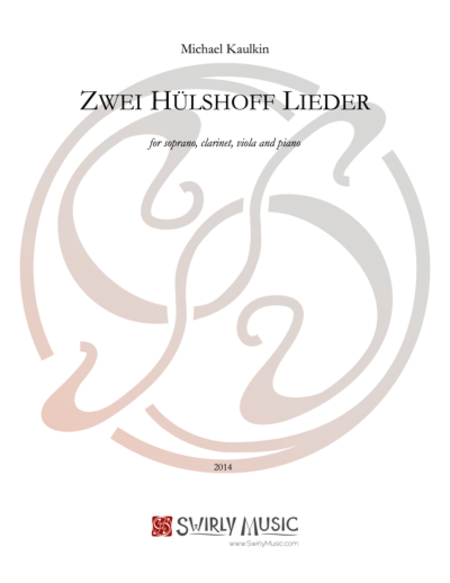
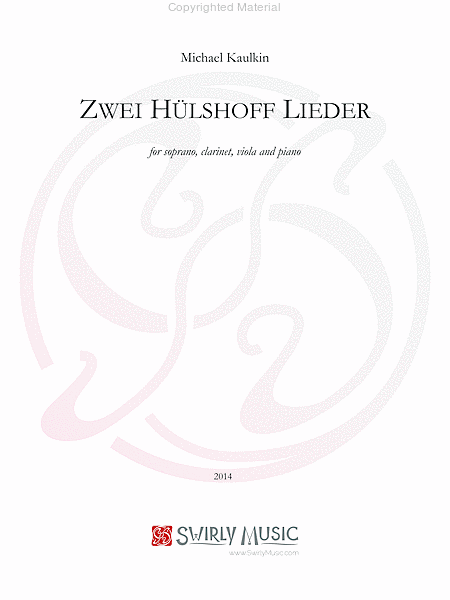
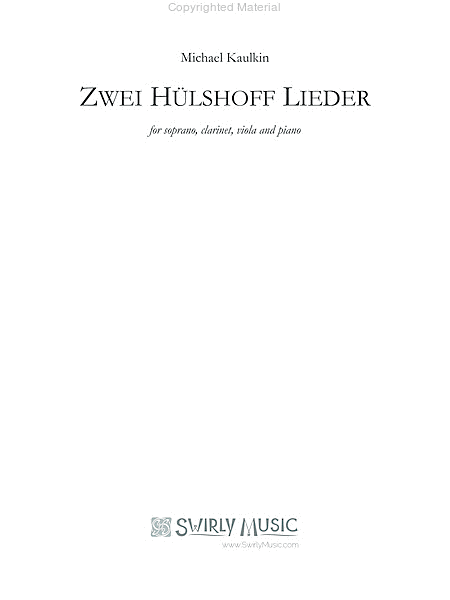
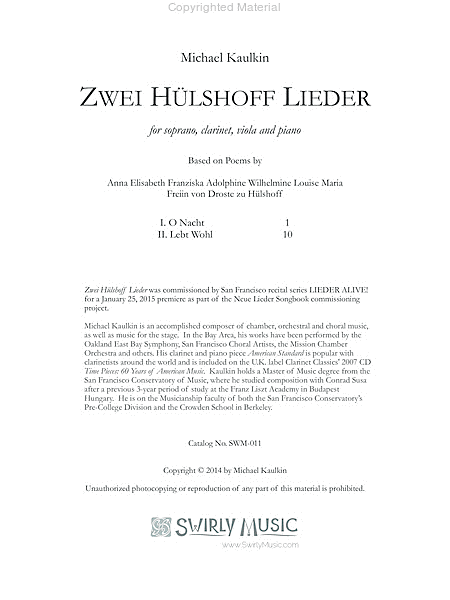
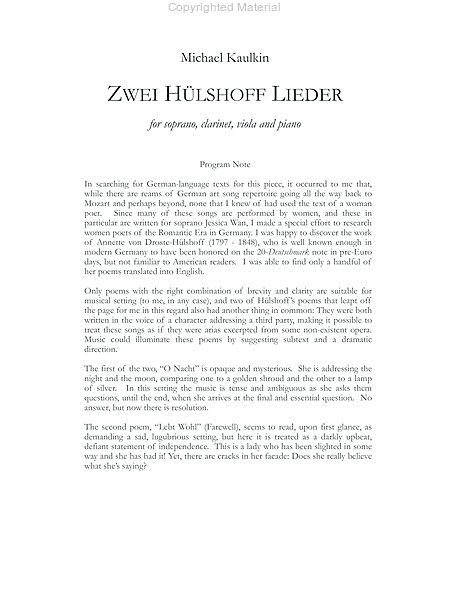
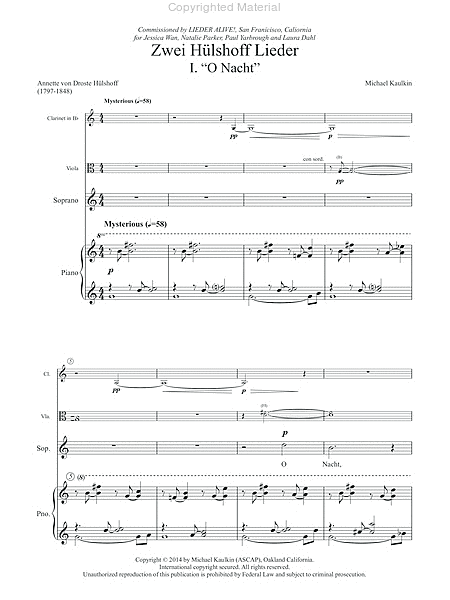
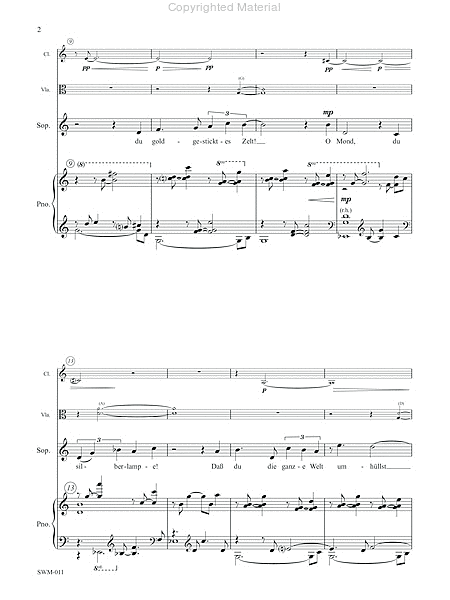
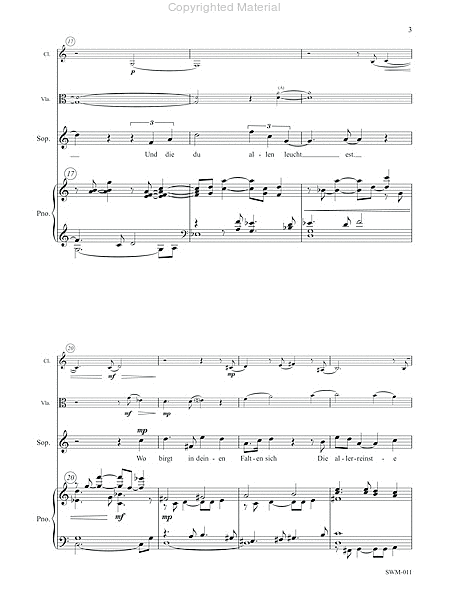
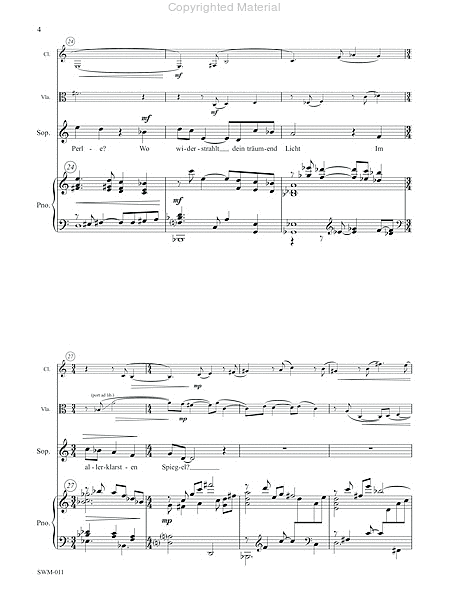
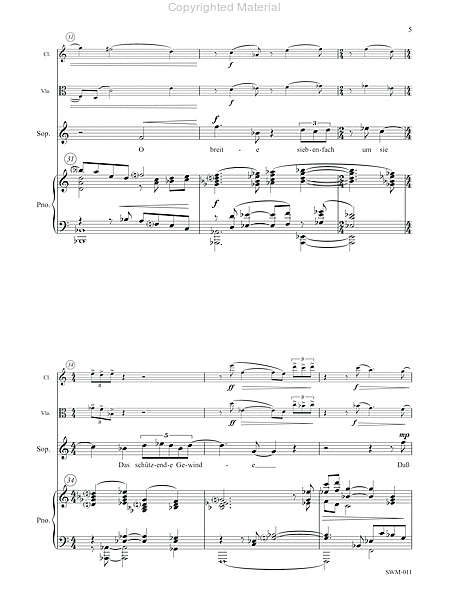
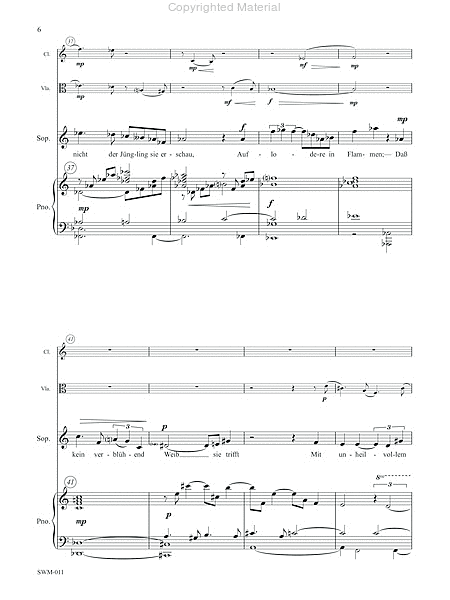
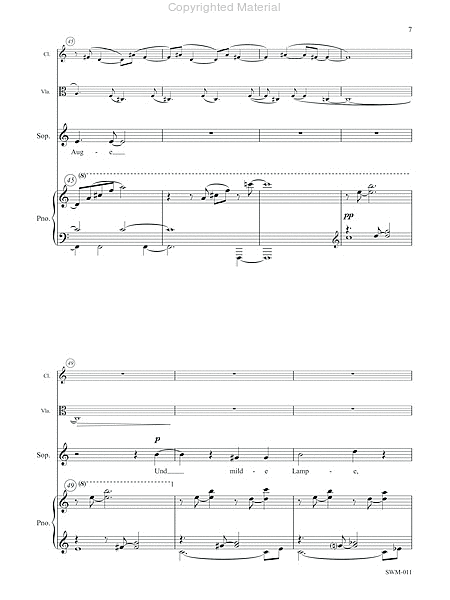
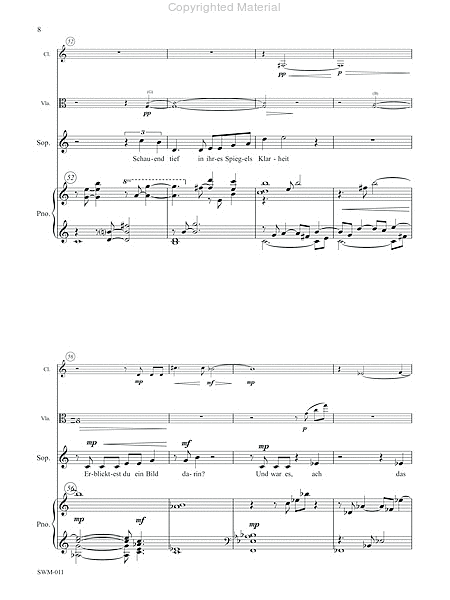
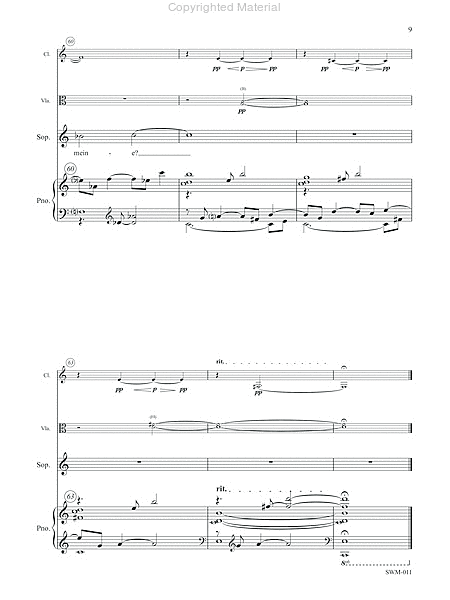
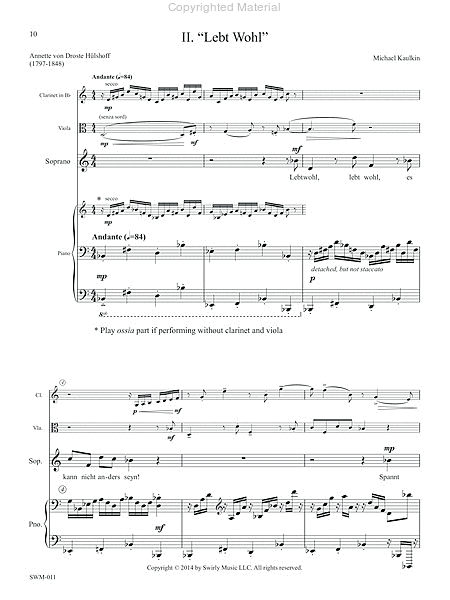
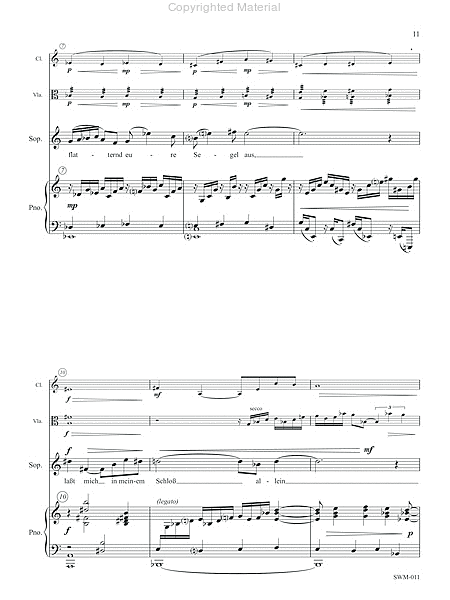
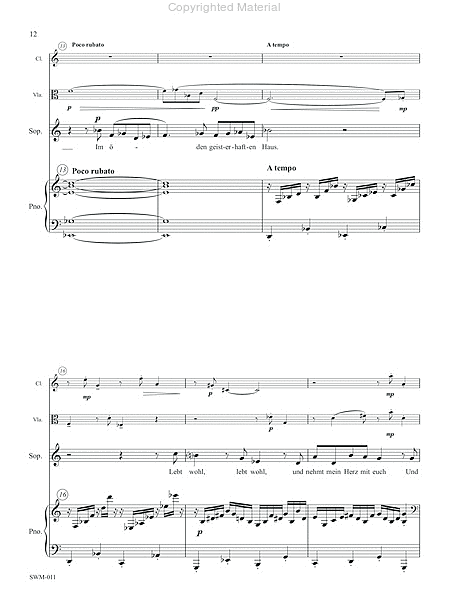
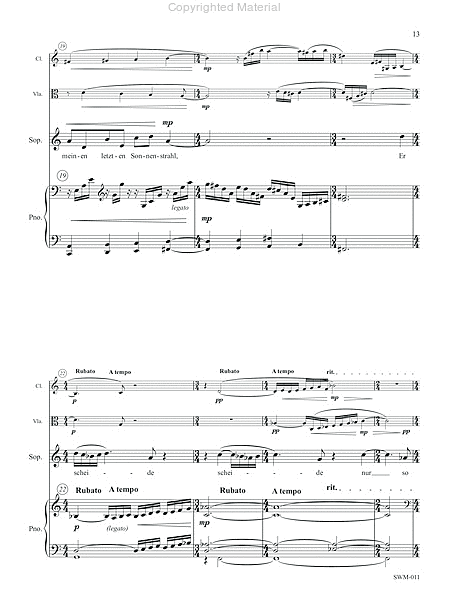
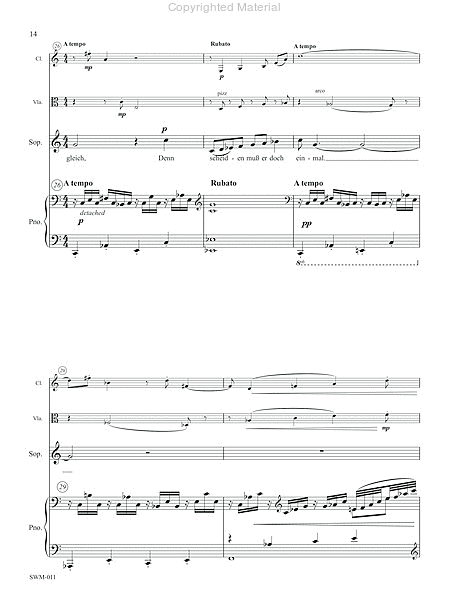
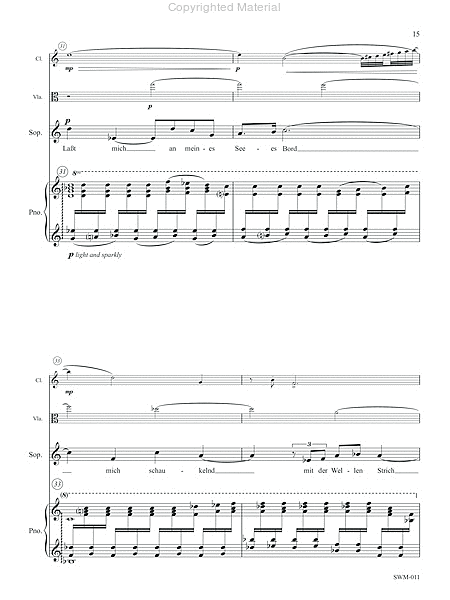
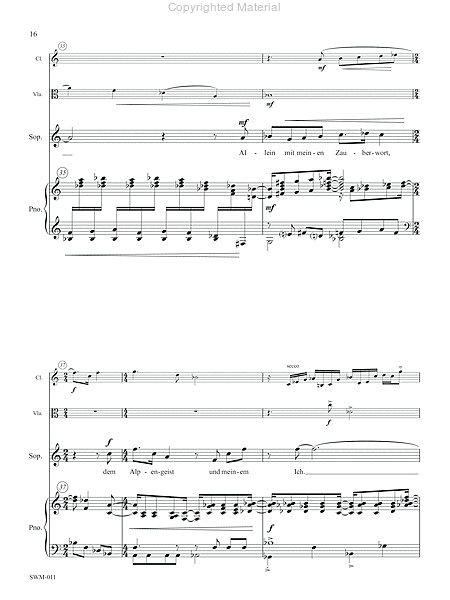
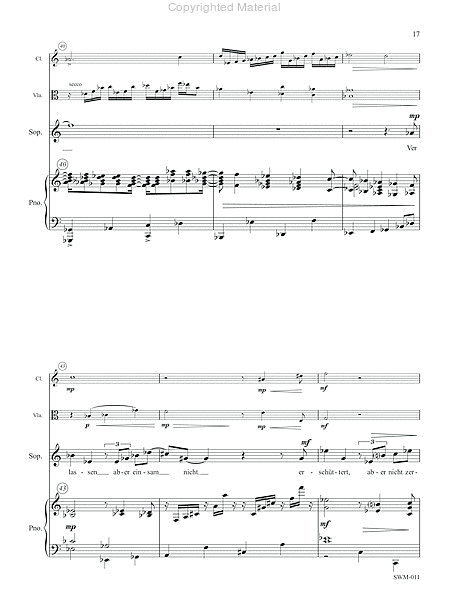
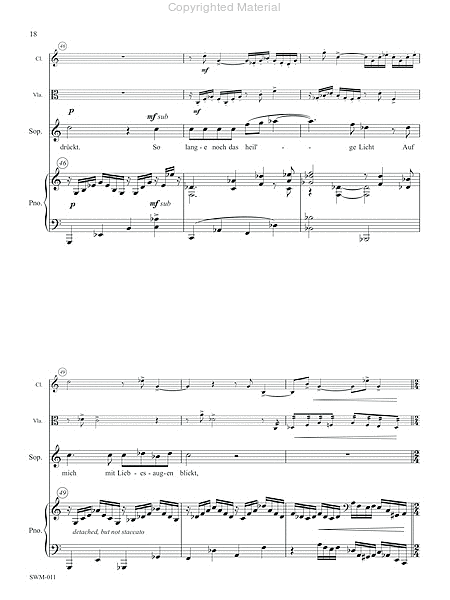
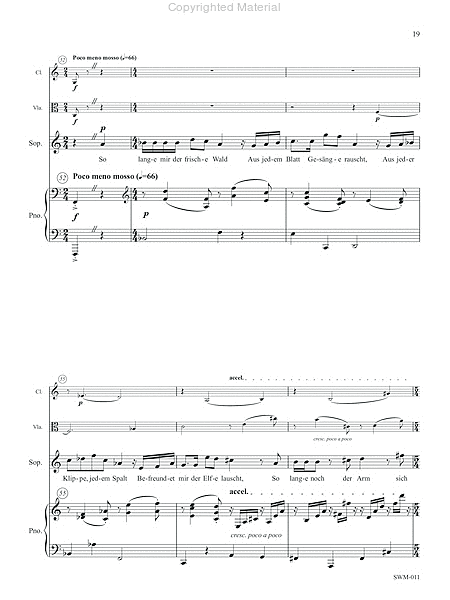
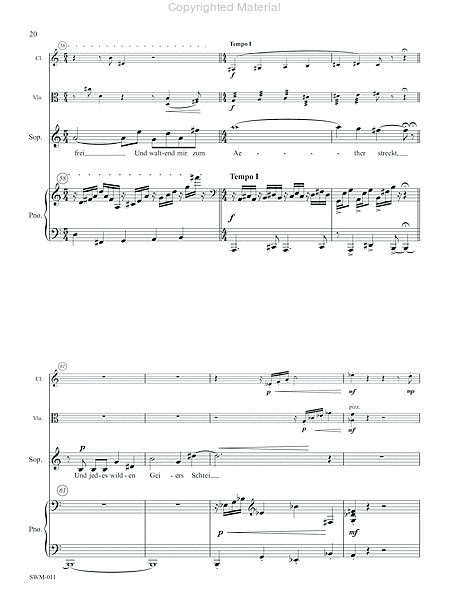
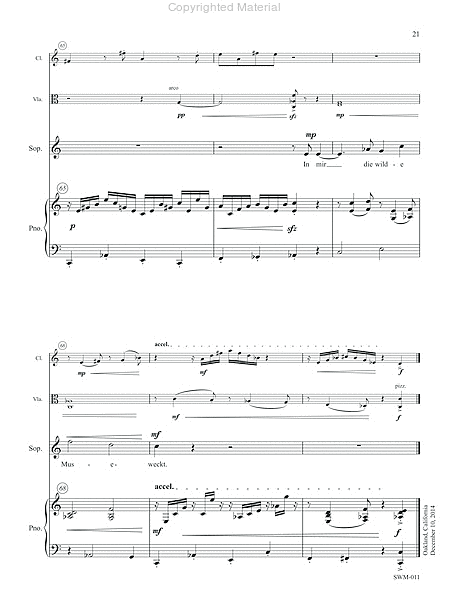
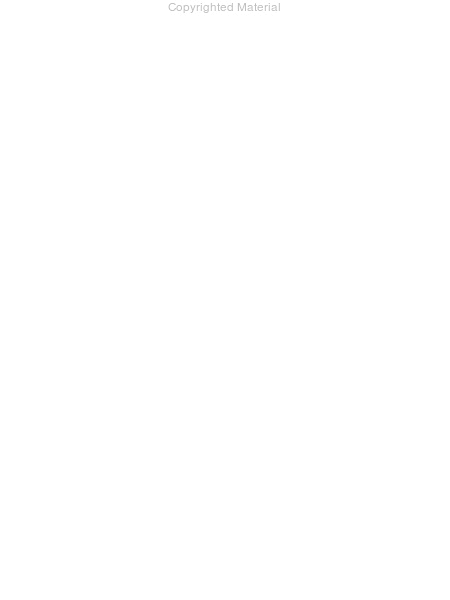
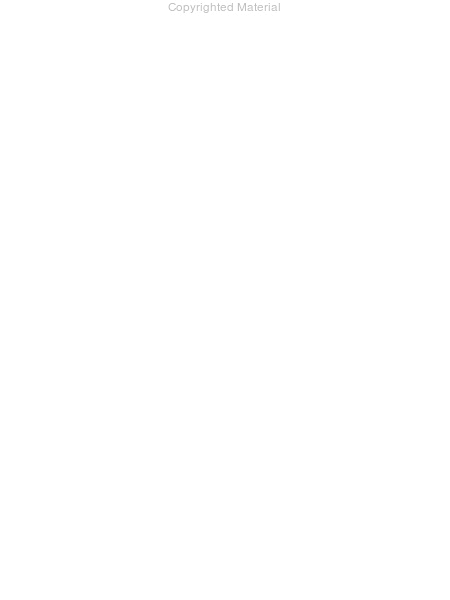
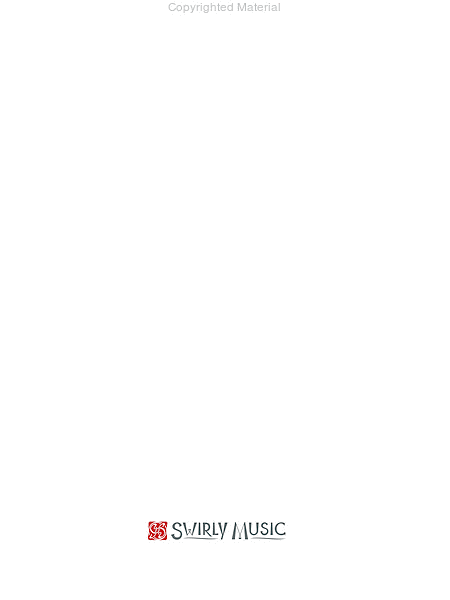
 Share
Share